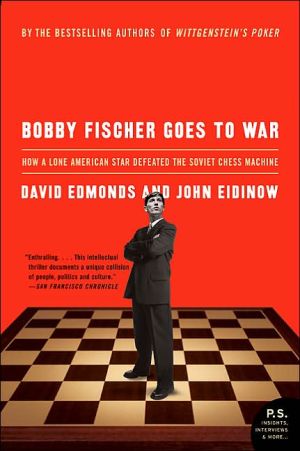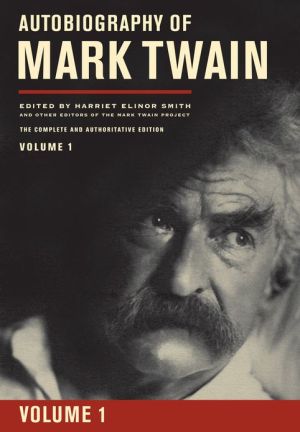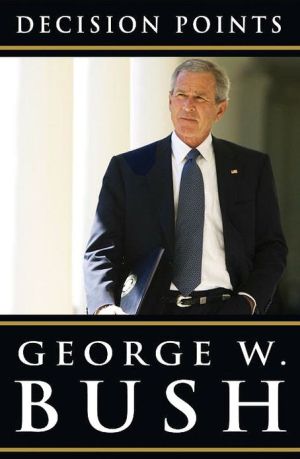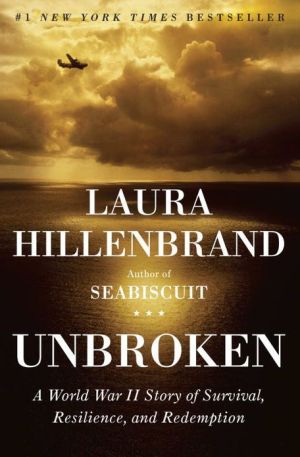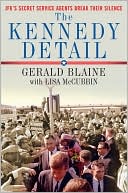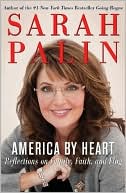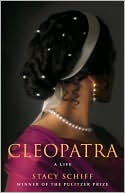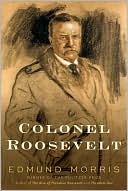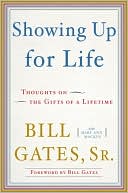Bobby Fischer Goes to War: How the Soviets Lost the Most Extraordinary Chess Match of All Time
In the Summer of 1972, with a presidential crisis stirring in the United States and the cold war at a pivotal point, two men -- the Soviet world chess champion Boris Spassky and his American challenger Bobby Fischer -- met in the most notorious chess match of all time. Their showdown in Reykjavik, Iceland, held the world spellbound for two months with reports of psychological warfare, ultimatums, political intrigue, cliffhangers, and farce to rival a Marx Brothers film. Thirty years later,...
Search in google:
In the summer of 1972, with a presidential crisis stirring in the United States and the cold war at a pivotal point, the Soviet world chess champion, Boris Spassky,and his American challenger, Bobby Fischer, met in Reykjavik, Iceland, for the most notorious chess match of all time. Their showdown, played against the backdrop of superpower politics, held the world spellbound for two months with reports of psychological warfare, ultimatums, political intrigue, cliffhangers, and farce to rival a Marx Brothers film. Thirty years later, David Edmonds and John Eidinow have set out to reexamine the story we recollect as the quintessential cold war clash between a lone American star and the Soviet chess machine. A mesmerizing narrative of brilliance and triumph, hubris and despair, Bobby Fischer Goes to War is a biting deconstruction of the Bobby Fischer myth, a nuanced study on the art of brinkmanship, and a revelatory cold war tragicomedy.This P.S. edition features an extra 16 pages of insights into the book, including author interviews, recommended reading, and more. The New York Times … the details of the square-off remain compelling. And Bobby Fischer Goes to War underscores the extent to which each player became the uneasy flag-bearer for his government. — Janet Maslin
Note on the Transliteration of RussianxiDramatis PersonaexiiiGlossaryxixWorld Chess Champions to 1969xxiii1Match of the Century12Brooklyn Boy43Mimophant194Child of Destruction335The Russian from Leningrad506Living Chess707Bulldozer to Reykjavik828Trouble in Paradise999Big Contest, Little Island12210Bobby Is Missing13011Who's Sorry Now?15312Rage Rules16213Blood in the Back Room17714Eyeball to Eyeball18615A Love-Hate Relationship19116Smashed19717Middle Game21118Chess Contagion22519To the Bitter End23320Extra-Chess Means and Hidden Hands24921Adversary Partners27022Uneasy Lies the Head That Wears the Crown281Appendix313Acknowledgments323Selective Bibliography327Index335
\ Entertainment Weekly"Note to Hollywood: It’s Miracle meets A Beautiful Mind. Get on it."\ \ \ \ \ San Francisco Chronicle"Enthralling…. Edmonds and Eidinow are ideal guides through the history and psychology of chess."\ \ \ Time magazine“Bobby Fischer Goes to War tells the story in fine, brisk style…conveying the richness of the world beyond the chessboard.”\ \ \ \ \ Christian Science Monitor"[Edmonds and Eidinow] show themselves once again to be grandmasters of nonfiction narrative."\ \ \ \ \ Washington Post Book World"This is the definitive history of Fischer vs. Spassky."\ \ \ \ \ Florida Sun-Sentinel"Superbly researched…. Bobby Fischer Goes to War fills an important gab in the literature on this showdown."\ \ \ \ \ Los Angeles Times"The finest addendum ever to the 1972 chess world championship.’"\ \ \ \ \ Washington Times"David Edmonds and John Eidinow have penned a delightful book about the politics of that legendary match."\ \ \ \ \ Atlanta Journal-ConstitutionA superbly researched reminder of a 20th century culture clash."\ \ \ \ \ Chess Life"[A] praiseworthy, terrific book… marvelous."\ \ \ \ \ Booklist"[An] intriguing look at the world of competitive chess, circa 1972.... Good reading, especially for chess buffs."\ \ \ \ \ Boston Globe"The book will be one of the major sources of history for new generations of chess players."\ \ \ \ \ Nashville Tennessean"A fascinating story well told."\ \ \ \ \ Time Magazine"Bobby Fischer Goes to War tells the story in fine, brisk style…conveying the richness of the world beyond the chessboard."\ \ \ \ \ Entertainment Weekly“Note to Hollywood: It’s Miracle meets A Beautiful Mind. Get on it.”\ \ \ \ \ Los Angeles Times“The finest addendum ever to the 1972 chess world championship.’”\ \ \ \ \ Atlanta Journal-ConstitutionA superbly researched reminder of a 20th century culture clash.”\ \ \ \ \ Booklist“[An] intriguing look at the world of competitive chess, circa 1972.... Good reading, especially for chess buffs.”\ \ \ \ \ San Francisco Chronicle“Enthralling…. Edmonds and Eidinow are ideal guides through the history and psychology of chess.”\ \ \ \ \ Boston Globe“The book will be one of the major sources of history for new generations of chess players.”\ \ \ \ \ Washington Times“David Edmonds and John Eidinow have penned a delightful book about the politics of that legendary match.”\ \ \ \ \ Nashville Tennessean“A fascinating story well told.”\ \ \ \ \ Washington Post Book World“This is the definitive history of Fischer vs. Spassky.”\ \ \ \ \ Christian Science Monitor“[Edmonds and Eidinow] show themselves once again to be grandmasters of nonfiction narrative.”\ \ \ \ \ Florida Sun-Sentinel“Superbly researched…. Bobby Fischer Goes to War fills an important gab in the literature on this showdown.”\ \ \ \ \ Chess Life“[A] praiseworthy, terrific book… marvelous.”\ \ \ \ \ The New York Times… the details of the square-off remain compelling. And Bobby Fischer Goes to War underscores the extent to which each player became the uneasy flag-bearer for his government. — Janet Maslin\ \ \ \ \ The Washington PostBobby Fischer Goes to War, by British journalists David Edmonds and John Eidinow, professes to break ground: to tell, as its subtitle announces, how the Soviets lost the most extraordinary chess match of all time. Edmonds and Eidinow, BBC veterans and authors of the acclaimed Wittgenstein's Poker, have met their goal: This is the definitive history of Fischer vs. Spassky. Edmonds and Eidinow carefully relate the complex turns of the championship while detailing the unseen prodding of the powers behind the Cold War curtains (namely, KGB minders and Henry Kissinger), without allowing the match's twin plots -- the moves on the chessboard and in the political arena -- to eclipse each other. — Andrew Meier\ \ \ \ \ Publishers WeeklyTsoutsouvas turns in a steady, suitably understated performance of this eminently engrossing account of the 1972 world championship chess match between the eccentric American challenger Bobby Fischer and the then-reigning Soviet title holder Boris Spassky. Edmonds and Eidinow (Wittgenstein's Poker) explore not only the widely variant backgrounds of each of the players, but also the nuances of the Cold War societies that produced them. The political wrangling on both sides-coupled with Fischer's outrageous, often petulant demands-turn what might have been a humdrum tale of logistics and chess analysis into a vibrant carnival of human stubbornness, ego and, occasionally, brilliance. Tsoutsouvas reads in a level, largely unembellished style, but his approach suits this sober text. And while characterization is not a highlight of the reading, Tsoutsouvas, with his natural baritone, can't resist a pass at some of the Russian accents or the voice of Henry Kissinger, which he does admirably. It all makes for a fitting rendition of this intriguing take on the forbearance and political gamesmanship it took to get two grown men to sit down across a table from one another and play a game. Simultaneous release with the Ecco hardcover (Forecasts, Dec. 8, 2003). (Mar.) Copyright 2004 Reed Business Information.\ \ \ \ \ Library JournalThe Cold War between the United States and the Soviet Union was conducted on numerous fronts, with the chess contest between Bobby Fischer and Boris Spassky being one of the strangest. Edmonds and Eidinow, who earlier brought us the innovative Wittgenstein's Poker, have now teamed up to write a sprightly narrative about the famous 1972 championship match in Reykjavik, Iceland, between the mercurial and eccentric Fischer and his quiet and long-suffering Soviet opponent Spassky, the reigning world chess champion. Fischer showed up late and consistently complained about everything from the size of the chessboard to the type of transportation he was provided. In the middle of it all, Henry Kissinger, President Nixon's national security adviser, would phone Fischer to offer encouragement, thus indicating that this was more than a simple chess match: it was a titanic battle between two ideologies and two political systems. This engagingly written book delves into the arcane world of international chess and into the peculiar minds of the men who fought mightily over those 64 black-and-white squares. And, believe it or not, it is a real page-turner! Recommended. [Previewed in Prepub Alert, LJ 11/15/03.]-Ed Goedeken, Iowa State Univ. Lib., Ames Copyright 2003 Reed Business Information.\ \ \ \ \ Kirkus ReviewsThe BBC journalists who honed their skills in amassing minutiae with Wittgenstein's Poker (2001) re-create the furor surrounding a chess match that was also one of the Cold War's most bizarre confrontations. The attention focused on the 1972 Bobby Fischer-Boris Spassky world championship match in Iceland was extraordinary: Edmonds and Eidinow recount that one reporter hit 21 Manhattan bars and found l8 TVs tuned to PBS, which showed a chess pundit posting teletyped moves on a magnetic board, while only three carried a Mets game. The authors build to a crescendo with other fascinating details, taking the reader inside the two camps in Reykjavik. Spassky got full-time analysis from a whole team of international champions, some of whom had been studying Fischer's key games for a year, plus a psychologist, a physical trainer, and several KGB operatives traveling under false colors. Fischer's two assistants, one a grandmaster, were primarily gofers and experienced complainers. Spassky's congeniality and savoir faire charmed the watching world; Fischer's constant carping over playing conditions and his outrageous allegations of conspiracy, including possible assassination, dismayed fans even in the US, but the desperate Icelandic organizers bent to his every whim. Finally goaded by a phone call from Henry Kissinger-Nixon was busy pondering the implications of the recent Watergate break-in-Fischer showed up, played a bad first game and lost, then forfeited the second out of sheer petulance. When the magic finally began in game three, Fischer played the brutal, grinding chess that had brought him an unprecedented string of consecutive victories during the two preceding years. In the end it wasSpassky who was in psychological shock and the Soviets who claimed (and still maintain) that they were victims of a sinister plot: telepathy, poisoned food, "electronic rays," anything that would explain their champion's embarrassing loss. Mavens will mourn the dearth of move-by-move analysis, but general readers will savor a marvelous portrait of East against West, with perceived societal superiority as the real prize. Author tour. Agent: Phyllis Westberg/Harold Ober & Associates\ \
